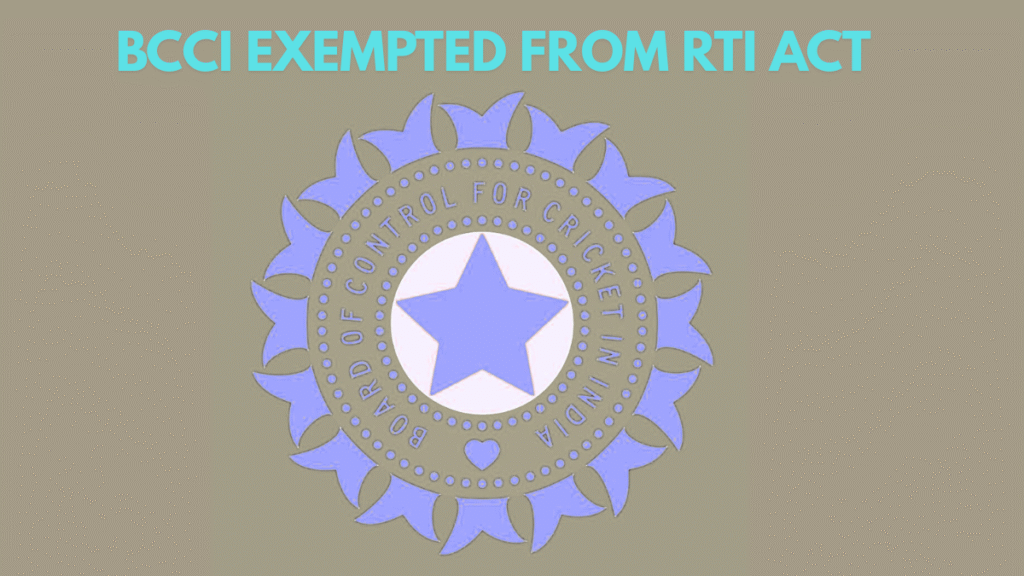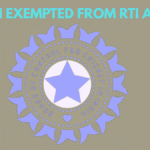The Board of Control for Cricket in India (BCCI) has been granted significant relief by the Sports Ministry, as a vital amendment has allegedly guaranteed that wealthiest cricket board globally will remain outside the scope of the Right to Information (RTI) Act.
The BCCI has maintained its independence from the Sports Ministry until now; however, the National Sports Governance Bill, which was presented in the Lok Sabha on 23 July by Union Minister Mansukh Mandaviya, has placed the Indian cricket board within the jurisdiction of the proposed National Sports Board (NSB).
The National Sports Governance Bill aims to acknowledge National Sports Federation (NSFs) and oversee their operations, thereby enhancing governance and increasing transparency.
The BCCI will continue to function as an independent entity under the National Sports Governance Bill, similar to the other NSFs; however, any disputes involving them will be addressed by the National sports Tribunal.
What measures will be taken to exclude BCCI from the scope of the RTI Act?
Amid the controversial move in Parliament, the BCCI has received favourable news as sources indicate that the Sports Ministry has revised the RTI-related provision of the National Sports Governance Bill.
According to the most recent amendment, the only those sports federations that depend on government grants and support will now be subject to the provisions of the RTI Act.
Previously, clause 15 (2) specified that “a recognised sport organization shall be regarded as a public authority under the Right to Information (RTI) Act, 20025 concerning the execution of its functions, duties and powers under the Act.”
However, the BCCI expressed discomfort with the situation and allegedly objected to being subjected to the RTI Act, as it does not rely on government funding. The amendment has how alleviated their concerns.
What is RTI Act?
The Right to Information (RTI) Act, which was enacted in 20025, stands as one of the most significant laws in India, empowering citizens to request information from governmental entities. This legislation is crucial in fostering openness, transparency, and accountability within public administration.
The RTI Act grants any citizen of India the authority to seek information from a public authority an entity that is owned, managed, or significantly funded by the government. This encompasses government departments, public sector enterprises, local authorities, and even NGOs that substantial government funding.
Who Is Covered Under the RTI Act?
- Central and State Governments
- Municipal Corporations and Panchayats
- Government-funded bodies
- Public Sector Undertakings
- Constitutional Authorities (like the Election Commission, CAG, etc.)
Who Is Not Covered?
Certain organizations are granted exemptions, particularly intelligence and security agencies (such as RAW and IB), unless the requested information pertains to claims of corruption or violations of human rights. Moreover, recent legislative changes and governmental actions including the exemption of the BCCI from the RTI have sparked discussions regarding the appropriate balance between autonomy and public accounta







